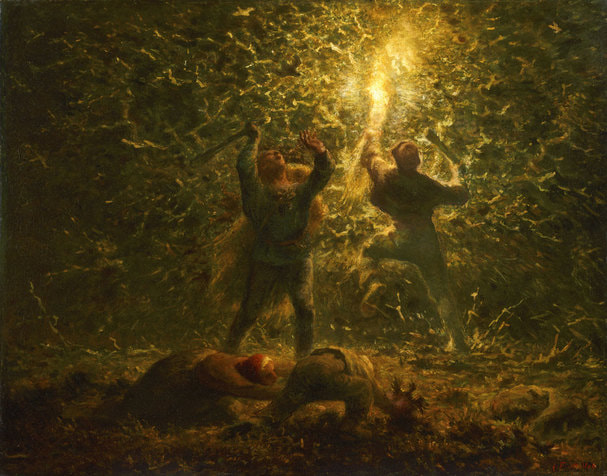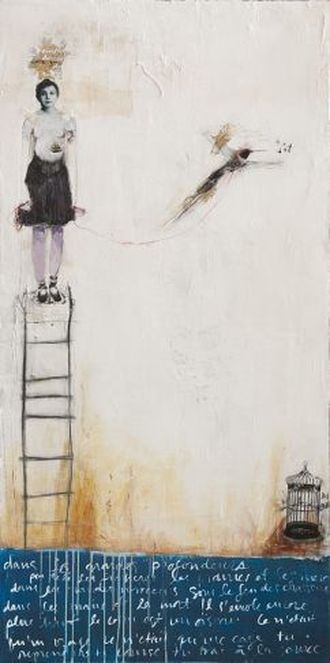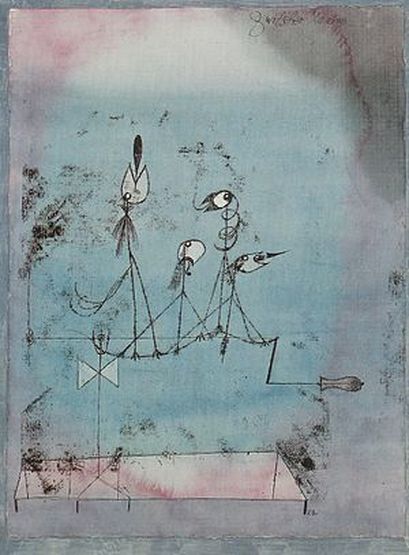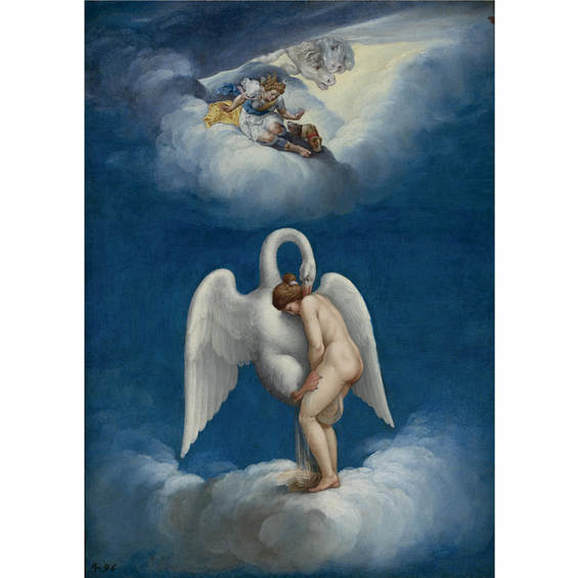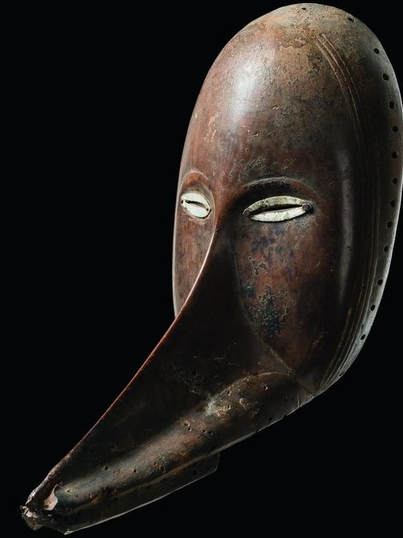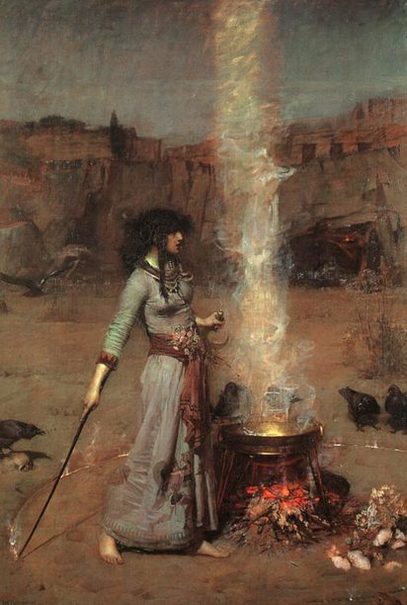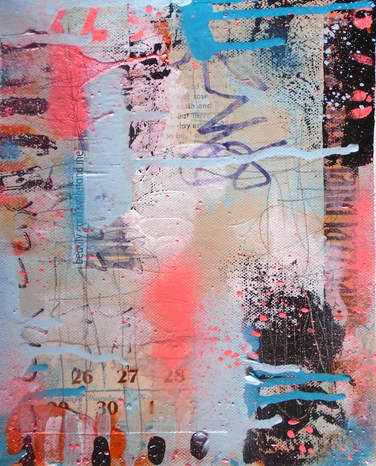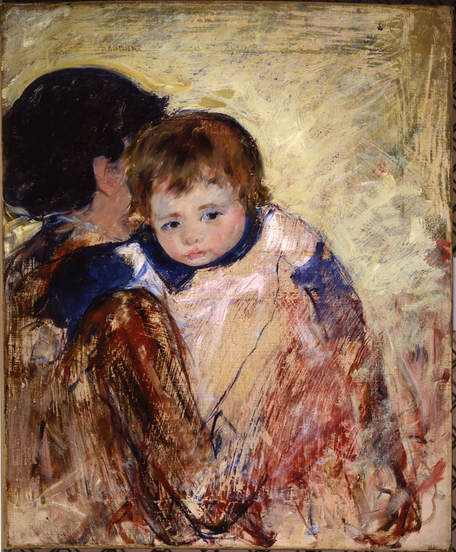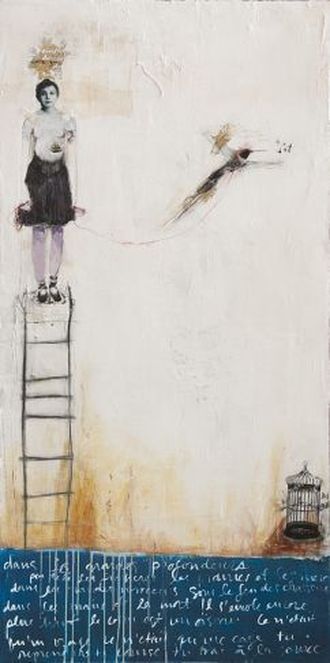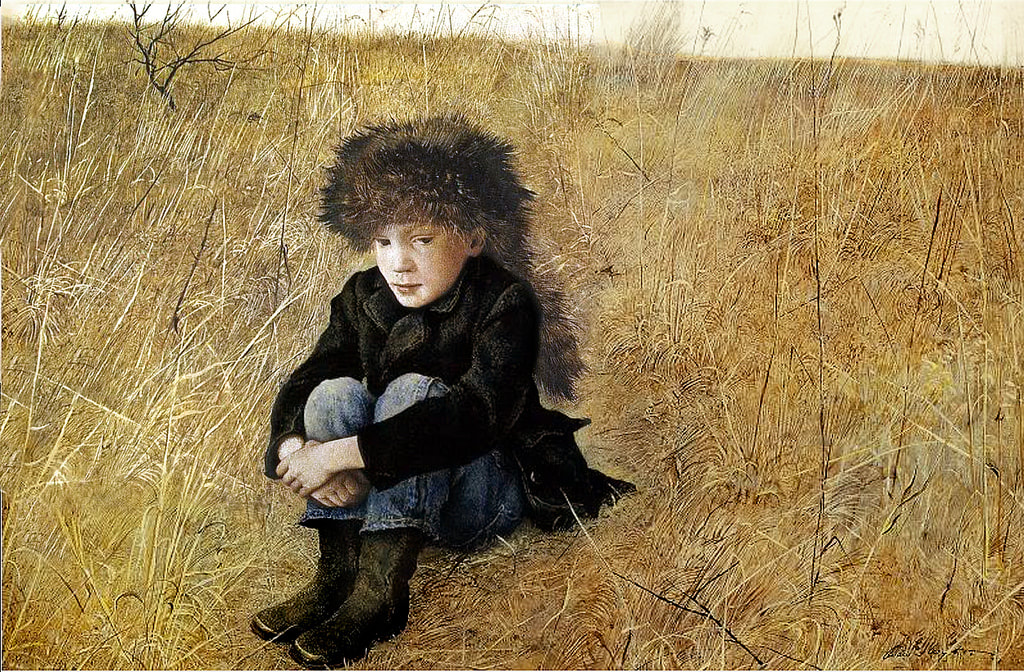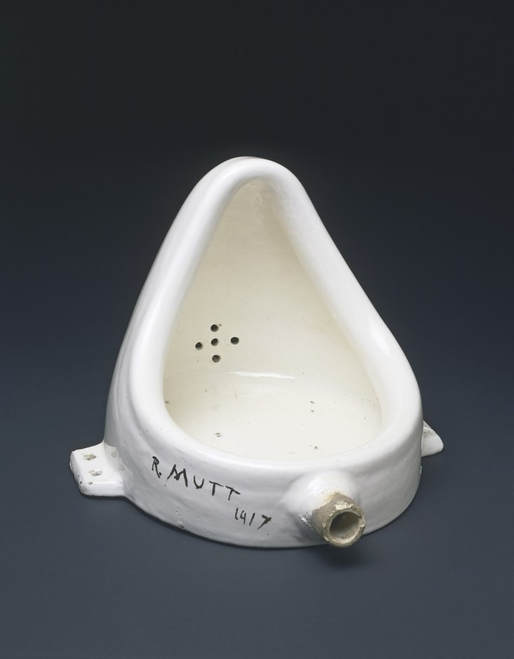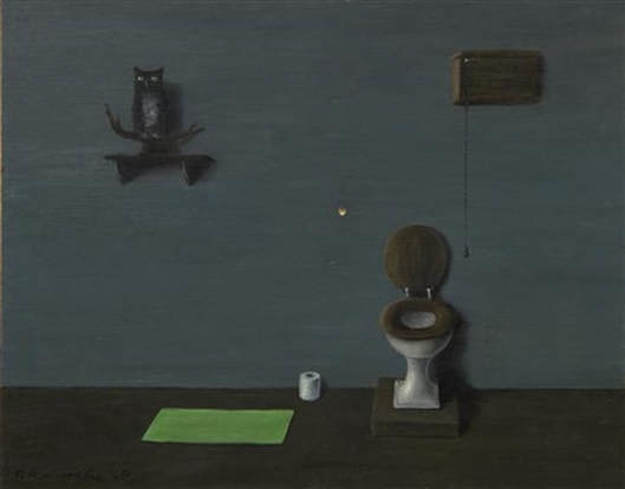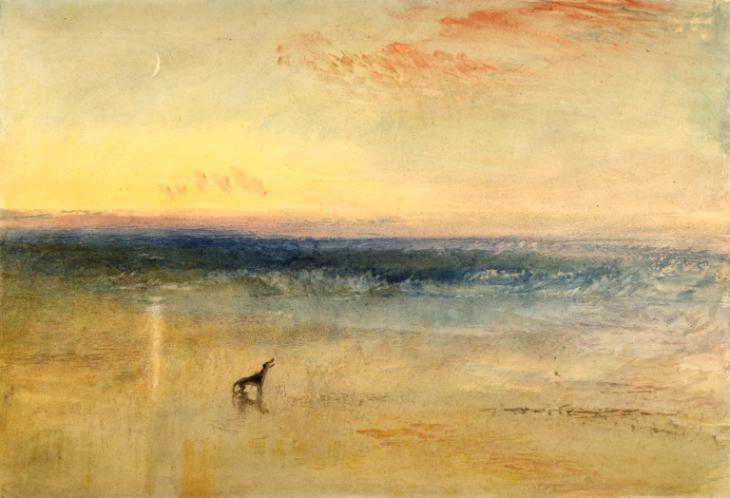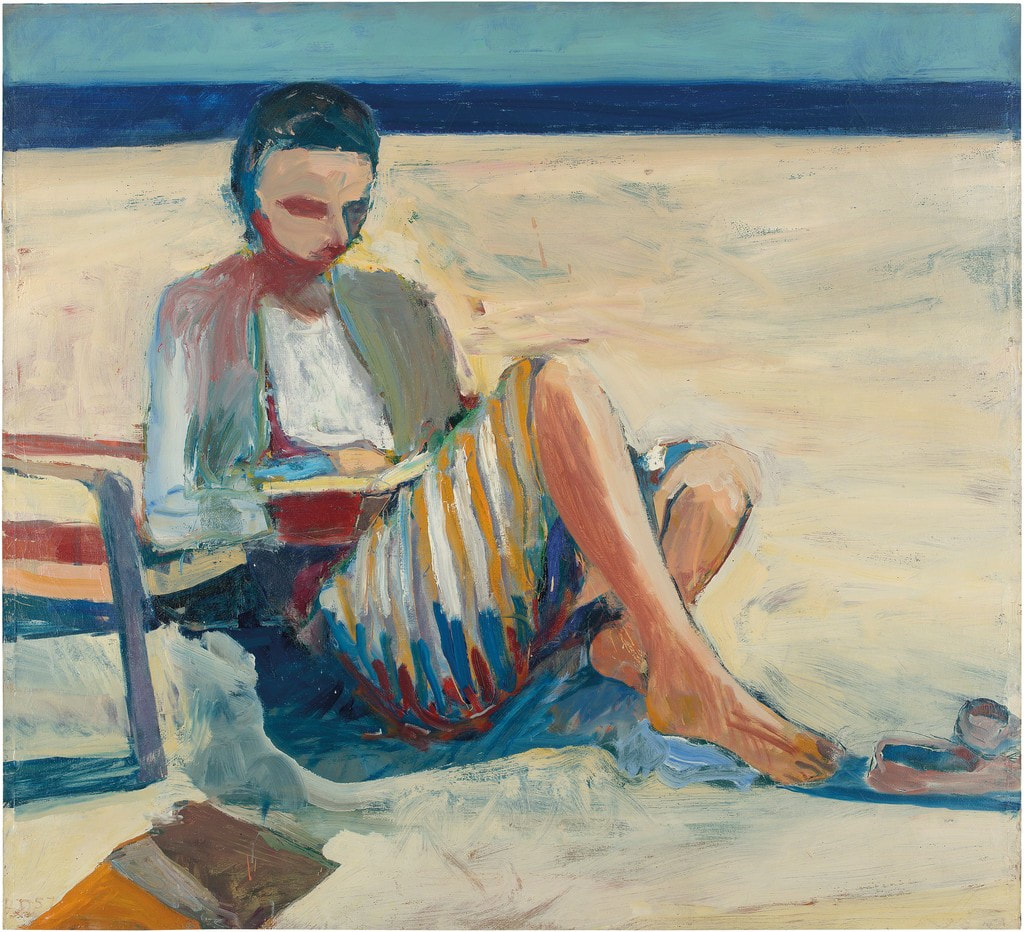|
The Hunger and the Hunt
Sometimes a blazing torch shows us in another light: the ones who swing the clubs and the ones who pick up the pieces. There are nights of fire and blood, and there are nights of stories and brag around the flames. There is hunger, and there is greed. Night and day. It is shocking to see wolves take down a deer, ripped at the haunches and still alive. And who doesn’t pity the mouse cornered and facing the mouth of the snake? And there are days when everyone gathers at the table, and the aroma of seasoned, cooked birds fills the room with all the satisfaction to come. Matthew Murrey This poem was written as part of the ekphrastic surprise challenge on birds. Matthew Murrey: "My poems have appeared in various journals such as Tar River Poetry, Poetry East, and Rattle. I received an NEA Fellowship in Poetry a number of years ago, and my first book manuscript is seeking a publisher. I am a high school librarian in Urbana, Illinois where I live with my partner. We have two sons who live in the Pacific Northwest. My website is https://matthewmurrey.weebly. com/"
1 Comment
The Bird Goes First
Enter handle, crank, shaft and suddenly man controls nature. The birds elongate their postures and become a dream of their own making. Sounds curl in their throats. We crave to wear the masks of other creatures. I would like to wear the mask of an ancient bird with eyes that can’t hold tears. The beak is only a phallus when imagined by man. It is difficult to decipherer between the clouds and the down of the swan’s belly and more difficult still to refrain from reaching out. To be seduced by a swan is to believe that beauty equals goodness. Out on the pond I’m told they kill their young. When I climb to the top of the ladder, attached by a string to a hummingbird, the string means we both know I lack courage. In the end I wont fly or try to fly, especially against the backdrop of this white sky. It’s hard to see the stars over my head or that my feet are carefully encased in plaster. The bird goes first. Another incomplete circle draws blood. There is no denying the scythe, round as a breast or a belly, but less forgiving. Ravens haunt the edges of the canvas. Feathers and hair the same shameful black. When the light hits it, a mirror most terrifying. Feet bare to the ground signifying sin, unnamed, but winged. Crystal Condakes Karlberg This poem was written as part of the surprise ekphrastic poetry challenge on birds. It responds to multiple bird paintings at once. Crystal Condakes Karlberg is a graduate of Simmons College and the Creative Writing Program at Boston University. She writes looking out her kitchen window where she often sees cardinals, house finches, blue jays, woodpeckers, and the occasional Baltimore oriole. Now you can support The Ekphrastic Review through Patreon! Click here for details.
A big thank you to Garth Ferrante and Caroline Bacher for being the first supporters to sign up. Hélène is Restless
The child is half-held, awkward arm over mother's shoulder, a looking-elsewhere child. The mother is half-hid, blood-red scratchings are her garment, her hair is black. The scene is indiscernible, smudged blankness, dull cream, dull green, ochre. A nowhere place, most likely walled. The artist is observant, entering, or restless herself, intensified as she works down the canvas. But the child is a looking-elsewhere one, whole-faced, thoughtful-eyed, active-minded. She is herself, and at the centre. Shirley Glubka Shirley Glubka is a retired psychotherapist, the author of three poetry collections, a mixed genre collection, and two novels. The Bright Logic of Wilma Schuh (novel, Blade of Grass Press, 2017) is her latest. Shirley lives in Prospect, Maine with her spouse, Virginia Holmes. Website: http://shirleyglubka.weebly.com/ Online poetry at 2River View here and at The Ghazal Page here and here. Quiet
When one escapes the language and frees the screaming bird, perches above letters rising, there is little she needs to say. John Riley This poem was written for the surprise ekphrastic challenge on birds. John Riley lives in North Carolina, where he works in educational publishing. His fiction and poetry have appeared in several print and electronic journals, including SmokeLong Quarterly, Connotation Press, Willows Wept Review, Loch Raven Review, Dead Mule, and Blue Five Notebook. He can be reached at [email protected]. In the Dead Grass of November
Dan opened his fist and there on his muddy palm, a pocket-knife, red, holding two blades. soon as I saw it want came to me the way a pig goes to slop, just pushing its snout in, not caring what’s in the trough-- open-mouthed and swallowing. so only thing to do was take it, easy enough when he hung his coat and took his seat. now I carry it in my pocket and it pecks at me like a blackbird, wearing a deep hole. can’t nobody tell me I done wrong because I already know. only take it out when I’m alone-- big blade good for carving, small for poking holes like the eyes of a pot shot crow. Judy Kaber Judy Kaber's poems have appeared or are forthcoming in Eclectica, Crab Creek Review, Miramar, Off the Coast, and The Comstock Review. She is a retired elementary school teacher living in Maine.
Fountain Why am I an artwork when that is not, Said a urinal put down on a plinth. Philosophy was raised, but from the work; The consciousness of art then knew itself. From then on art became philosophy. But why not, then, just write it down, make up An example of two objects? But, look, A urinal! It’s disingenuous To say it could be anything. How male. But curved and open, how female. How like Brancusi’s white, suggestive, abstract works, Made that same year. The question’s time was right. He called it “Fountain,” what was that about? It makes you think the liquid will shoot out. Eric Fretz Eric Fretz has been a student of contemporary visual arts since they were modern, and not contemporary, and a long time reader of modern poetry. He is a published author of art criticism and history, but has only recently been persuaded to share his ekphrastic writing exercises. He divides his time between Brooklyn and Beacon, New York, and between art and politics. Owl in the Bathroom
sir, what would you have said to me as you saw me laying there feeling the cold tile aspirate drops popping up and down again? or maybe you would’ve said, “you’re better off going in blind, you’ll choke if you know beforehand all there is to torment you with…” i would only have understood my own fear, not the quiet light behind your eyes telling me it was going to be fine because i had no confidence back then, and hiding out in the bathroom, cover up on the toilet, seat down and ready for business, that was no way for me to live: it was never someplace to hide-- even you couldn’t just fly away… me, i just wanted to, which wasn’t the same thing as jerking off on the bathroom floor wishing i was anywhere but here Garth Ferrante This poem was written as part of the surprise ekphrastic challenge on birds. Garth Ferrante is a complete unknown who teaches, writes, and makes games out of challenging his own creativity. He writes because he loves to, because he finds meaning and purpose in it, because if he didn’t, life would be lifeless. Mediterranean Nocturne: Warm Horizon at Dawn 1999
after Stephen Hannock "What you hear is not my voice" sonically enhanced as it travels the wide spread palms of water, blue- blackened in the distance near dawn; signal fires appear at the base of water spouts, the tide slackens, the air still as withheld breath Alan Catlin Editor's note: Alan Catlin's poem was inspired by the work of artist Stephen Hannock, whose stunning landscape paintings can be viewed at http://www.stephenhannock.info. Alan Catlin has been publishing for parts of five decades in little, minuscule, not so little, literary and university publications from the Wisconsin Review to Tray Full of Lab Rats, to Wordsworth’s Socks and The Literary Review among many others. His chapbook, Blue Velvet, won the Slipstream Chapbook Contest in 2017. He is the poetry and review editor of Misfitmagazine.net, an online poetry journal. Girl on the Beach, 1957
You can’t judge sugar by looking at the cane — Willie Dixon When the canvas was white before its “pristine surface was besmirched,” the artist must have imagined he lived in an occupied country run by a puppet government. Centuries after Vermeer took a boat ride from Delft to Leyden, picturing not a secular madonna but the narrative possibilities in a woman crying by the river, Diebenkorn painted a figure into the layered impasto of sand—transformed it into Girl on the Beach. I wonder that she’s so far from the centre. I’d guess she’s half a mile from the almost black Pacific, thin ribbon below broader ribboned blue-cracked sky. Strangely, I’ve always been attracted by the centre. Something about its vocabulary, how it offers a canopy to the surrounding architecture. The girl, who simultaneously appears both defiant and buoyant, reminds me of mating elephant seals drawing blood in Drake’s Bay or the wary Tule elk of Tomales Point. Thick strokes conjure orchid petals. One or more of her parents must be multi-floral. The painting’s odour is tropical, the smell of an epiphyte after blooming. It’s more than fifty years and she’s reading the same hardcover book. Twenty years from now I fear I’ll still be trying to describe her. Is she flat like drizzle falling on the beach is flat or is there depth to her like the beach has depth? Is it raining? She hasn’t ears, they’re hidden by pasted down hair (from the rain?) For weeks a castoff sofa has lain on Industrial Drive’s blind corner by the sheet metal works. I saw a couple standing behind it, embracing. I’m sure the woman was weeping even though I couldn’t see her face. There were tremors of reconciliation like the convulsions of a sobbing child finally done crying, gasping for air. With Girl on the Beach, I’m looking straight at her and can’t tell if she’s white, black, dead, alive. It’s the oval face of a mannequin, of a harlequin, the face of the American brushing her teeth in the horror film when her cheeks flake off in her hands. She has her own weather. Smudge of burnt ochre is her neck. She hasn’t a mouth. Not one gull flaps through her space. I can’t discern what she’s wearing—striped skirt or is it a towel across her legs? Or is a towel draped about her arms? Covering her chest could be a white blouse beneath a grayish top. Her left leg, bent, a mass of pigment looking like a drumstick torn from the slaughtered bird. Her right leg: shapely, supple, finely contoured. But nothing else has definition. There’s a beach chair but she’s sitting on the sand, maybe on a blanket or a sheet, one sandal visible beyond her feet, crooked elbow of right arm resting on the chair. Her centrality is off. Her eyes lack pupils. Light without sun. Sun without heat. She’s neither inside nor out. Though here she is, coming at you, sitting there reading, Girl on the Beach. Howard Faerstein Howard Faerstein’s full-length book of poetry, Dreaming of the Rain in Brooklyn, was published in 2013 by Press 53. A second book, Googootz and Other Poems is forthcoming from Press 53. His work can be found in numerous journals including Great River Review, Nimrod, CutThroat, Off the Coast, Rattle, upstreet, Mudfish and on-line in Gris-Gris, and Connotation. He is Associate Poetry Editor of CutThroat,A Journal of the Arts, and lives in Florence, Massachusetts. |
The Ekphrastic Review
COOKIES/PRIVACY
This site uses cookies to deliver your best navigation experience this time and next. Continuing here means you consent to cookies. Thank you. Join us on Facebook:
July 2024
|
